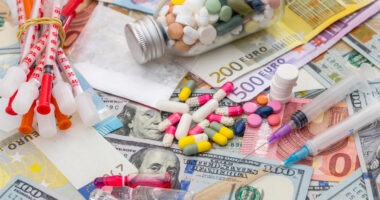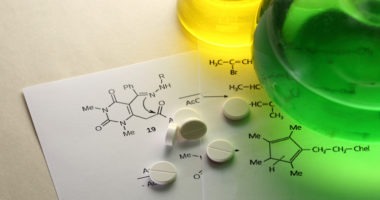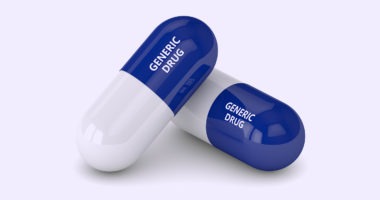COVID-19 and the Bio/Pharma Industry: The Bottom Line
What has been the impact of COVID-19 on bio/pharmaceutical companies’ bottom line? For companies successfully bringing products for COVID-19 to fruition, 1Q 2021 results have been positive. What is expected for the rest of 2021? DCAT Value Chain Insights takes an inside look.
Inside the numbers
The bio/pharmaceutical industry is projected for moderate growth over the next five years. Global medicine spending is expected to reach $1.6 trillion in 2025, excluding spending on COVID-19 vaccines, according to a recent analysis by the IQVIA Institute for Human Data Science. The global medicine market—using invoice price levels—is expected to grow at a 3-6% compound annual growth rate (CAGR) through 2025. The total cumulative spending on COVID-19 vaccines through 2025 is projected to be $157 billion, largely focused on the initial wave of vaccinations to be completed by 2022. In subsequent years, booster shots are expected to be required on a biannual basis as the durability of immunity and the continued emergence of viral variants make an endemic virus the most likely outcome, according to the IQVIA analysis.
“While the pandemic has been extremely disruptive, the pre-pandemic forces of medicine use and spending remain significant drivers of the outlook, and these forces have only been modestly impacted by the immediate effects of COVID-19,” said Murray Aitken, IQVIA’s Senior Vice President and Executive Director of the IQVIA Institute for Human Data Science. “The success of countries around the world in implementing a global vaccination program—unprecedented in speed and scope—will be key to the outlook for all medicine use through 2025 and beyond.”
There are strong variations in medicine usage and spending across global markets, according to the IQVIA analysis. Growth in global medicine spending will be lifted by stronger emerging market growth through 2025 and offset by developed markets, where slower growth will result as losses of exclusivity for original brands outweigh increased spending on newly launched innovative products. Growth will be led by China, which is expected to accelerate post-COVID, driven by greater uptake and use of new original medicines. In the US, the largest national pharmaceutical market, on a net price basis, the US market is forecast to grow at an 0-3% CAGR over the next five years, down from a 3% CAGR for the past five years. Medicines spending in Europe is expected to increase at a 2-5% CAGR or a total of $35 billion over the next five years to 2025.
Company performance: COVID-19 products
In looking at the individual company performance for those companies bringing COVID-19 products to fruition, projections for 2021 COVID-19 product sales are positive, particularly for Pfizer, Moderna, and Gilead Sciences. Highlights for first-quarter 2021 sales and 2021 guidance for these products are provided below.
Pfizer. Pfizer reported $3.5 billion in global revenues for the first quarter 2021 for its COVID-19 vaccine (BNT162b2), a mRNA vaccine co-developed with BioNTech, a Mainz, Germany bio/pharmaceutical company. The vaccine was granted emergency use authorization by the US Food and Drug Administration (FDA) in December 2020 and since then in other countries globally.
For the full year 2021, Pfizer updated its revenue guidance for its COVID-19 vaccine to $26 billion (the previous guidance was $15 billion). The company updated its revenue projection for the vaccine based on an expected delivery in 2021 of 1.6 billion doses of the vaccine under contracts that have been signed through mid-April 2021. The company’s guidance, which was reported on May 4, 2021, may be adjusted in the future as additional contracts are executed. The $26-billion revenue projection for the vaccine in 2021 incorporates the current expectation for revenues for the product, less anticipated costs to manufacture, market, and distribute the vaccine, including applicable royalty expenses and a 50% gross margin split with BioNTech, as well as shared R&D expenses. Overall, excluding projected revenues from its COVID-19 vaccine, Pfizer expects revenues of between $44.6 billion to $46.6 billion in 2021.
Moderna. For the first quarter of 2021, Moderna delivered approximately 88 million doses of its COVID-19 vaccine to the US government and approximately 14 million doses to other governments and recognized $1.7 billion in product sales, of which $1.4 billion was generated in the US and $375 million from the rest of the world. The vaccine received emergency use authorization by the FDA in December 2020 and has also been authorized in other countries globally. Moderna has signed advanced purchase agreements for its COVID-19 vaccine for scheduled delivery in 2021 for a total of $19.2 billion in anticipated product sales, including sales already recorded in the three months ended March 31, 2021.
In the fourth quarter of 2020, Moderna delivered approximately 17 million doses of its COVID-19 vaccine to the US government. Through April 12, 2021, it had cumulatively delivered approximately 132 million doses globally, including approximately 117 million doses to the US government and approximately 15 million doses delivered to other governments from its ex-U.S. supply chain. The company says it remains on track to deliver the second 100 million doses to the US government by the end of May 2021 followed by another 100 million additional doses by the end of July 2021 (as reported in its first quarter 2021 results). On April 29, 2021, the company announced an increase in its projected supply of its COVID-19 vaccine for 2021 to between 800 million and 1 billion doses.
Johnson & Johnson. In the first quarter of 2021, Johnson &Johnson reported sales of $100 million for its COVID-19 vaccine. The vaccine received emergency use authorization by the FDA in late February 2021.
AstraZeneca. AstraZeneca’s COVID-19 vaccine is not yet authorized for emergency use in the US. In its first-quarter 2021 results, as reported on April 29, 2021, the company says it plans to submit in the coming weeks its request for emergency use authorization to the FDA incorporating data from both US and non-US Phase III clinical trial programs and emerging real-world data. In March 2021, several regulatory agencies raised concerns about the potential risk of rare thrombotic events in people administered with the vaccine. Consequently, the UK’s Medicines and Healthcare products Regulatory Agency and the European Medicines Agency conducted several analyses that noted a potential causal link between the vaccine and these events. The agencies, however, reaffirmed that the vaccine’s overall benefits continue to outweigh the potential risks. Separately, the company acknowledged litigation by the European Commission against the company regarding a delay in supply of the vaccine to the European Union; the case is still pending. In the first quarter of 2021, the company reported revenues of $275 million for its COVID-19 vaccine.
In addition to its vaccine, AstraZeneca is developing AZD7442, a long-acting antibody (LAAB) combination therapy, which is in late-stage development for the prevention and treatment of COVID-19. Earlier this year (2021), the company modified an existing agreement with the US government to supply up to 500,000 additional doses of AZD7442, which builds builds on an agreement with the US government from October 2020 for the support of the late-stage development of AZD7442 and for the supply of an initial 100,000 doses of the LAAB combination. It included an option to acquire additional doses in 2021. The company also has a separate agreement to supply the US Department of Defense with 100,000 doses to bring potential US supplies of AZD7442 to 700,000 doses in 2021.
Gilead Sciences. In the first quarter of 2021, Gilead Sciences reported sales of its small-molecule antiviral drug for treating COVID-19, Veklury (remdesivir), of $1.456 billion, which was approximately 23% of the company’s first-quarter 2021 revenues of $6.4 billion. Total product sales, excluding Veklury, decreased 11% to $4.9 billion for the first quarter 2021 compared to the same period in 2020. For the full year in 2021, the company projects Veklury sales of between $2 billion and $3 billion.
Lilly. Eli Lilly and Company has developed certain monoclonal antibodies (mAbs) for treating COVID-19 and provided an update in its first-quarter 2021 results. The FDA granted emergency use authorization for the company’s investigational mAbs, bamlanivimab and etesevimab, administered together, for the treatment of mild-to-moderate COVID-19 in patients aged 12 and older who are at high risk for progressing to severe COVID-19 and/or hospitalization. As part of its previously reported collaboration with the company. Amgen began manufacturing etesevimab. In connection with now having the two drugs being administered together, the company requested the FDA revoke the emergency use authorization for bamlanivimab alone. This request was not due to any new safety concern. The FDA subsequently revoked the emergency use authorization for bamlanivimab alone. The.US government agreed to purchase a minimum of 100,000 doses of bamlanivimab and etesevimab together for a purchase price of $210 million. This purchase agreement was subsequently modified to enable the supply of etesevimab to complement doses of bamlanivimab the US government already purchased. In addition, the purchase agreement with the US government for bamlanivimab alone was terminated, and orders were cancelled for the remaining 350,856 doses that were scheduled to be delivered by the end of March 2021.
Regeneron Pharmaceuticals. Regeneron Pharmaceuticals, a Tarrytown, New York bio/pharmaceutical company, provided an update on REGEN-COVTM (casirivimab with imdevimab), its dual antibody cocktail to the SARS-CoV-2 virus, the virus that causes COVID-19. The treatment is currently available in the US to treat mild-to-moderate COVID-19 in adults, as well as in pediatric patients at least 12 years of age and weighing at least 40 kg, who have received positive results of direct SARS-CoV-2 viral testing and are at high risk for progressing to severe COVID-19 and/or hospitalization. In its first-quarter 2021 results, Regeneron report sales of REGEN-COV of $262 million.
In January 2021, the company announced a second agreement with the US government to manufacture and deliver REGEN-COV. The US government agreed to acquire up to 1.25 million additional doses at the lowest treatment dose authorized or approved by the FDA for the indication authorized under the emergency use authorization in payments of up to $2.625 billion in the aggregate. In March 2021, the company submitted a request to the FDA to update the emergency use authorization to a lower 1,200-mg dose based on positive clinical results.
Regeneron says it anticipates being able to provide at least 1 million doses by June 30, 2021 if the emergency use authorization is updated to the lower 1,200-mg dose. The US government is obligated to purchase all filled and finished doses of drug product delivered by June 30, 2021, and may accept additional doses through September 30, 2021 at its discretion. A number of factors may impact the quantity of filled and finished product supplied by June 30, 2021, including manufacturing considerations and authorized dose levels.




